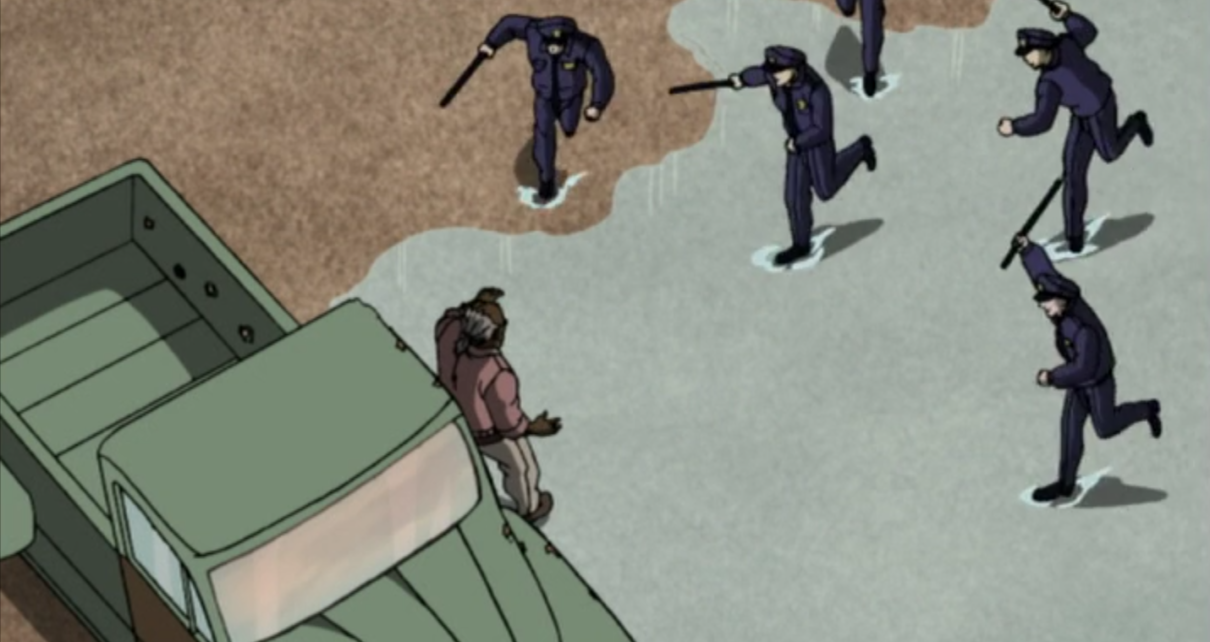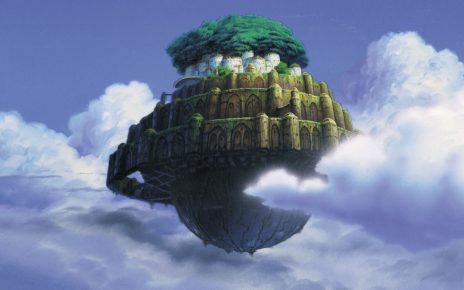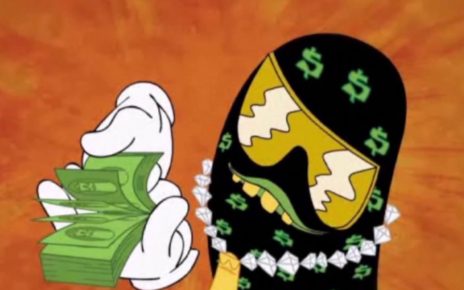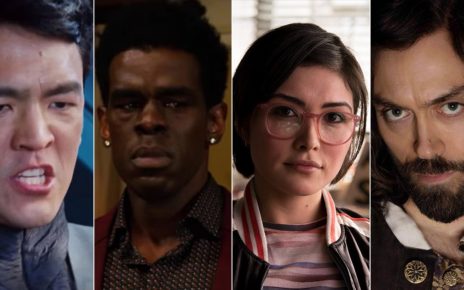One of the great strengths of cartoonist-turned-TV-producer Aaron McGruder is his ability to weave the horror of American life together with the sort of humor that would make you cringe if you weren’t laughing so hard.
With Adult Swim’s The Boondocks, he did just that for a late-night audience for three seasons, and he knew it. Upon stepping away from the show before its execrable fourth season, McGruder said that he always thought it was “important to offend, but equally important to offend for the right reasons.”
The Boondocks was an imperfect vessel—many a thinkpiece could be built upon its failure to do justice to its women characters—but a vital one nonetheless. In 2006, a black cartoonist piloted a show filled with black characters played by black voice actors in a medium and for a network that have always been predominately white. In the first minute of the show’s first episode, 10-year-old protagonist and “domestic terrorist” Huey Freeman (played, like his younger brother Riley, by a superb Regina King) declared: “Jesus was black, Ronald Reagan was the devil, and the government is lying about 9/11.”
And in the first few minutes of its fourteenth episode, “The Block Is Hot,” McGruder took aim at police violence against black people, which we are still reckoning with today.
The episode, like most Boondocks entries, is a knotty one, juggling all sorts of themes and references, from capitalism and labor laws to violent and nonviolent protests to white guilt (or lack thereof) to Do the Right Thing. But it’s the subplot following Uncle Ruckus (Gary Anthony Williams) — an extreme example of both an Uncle Tom and of McGruder’s flinch-meet-guffaw comedic philosophy — that feels ripped from the headlines not of 2006, but of 2016:
After calling the police to report a vandalized fire hydrant, Ruckus is mistaken for the perpetrator of the crime he reported—because, of course, he’s black. The police, all white, then proceed to shoot at Ruckus 167 times after he pulls his safety-orange wallet from his back pocket to furnish identification. When Ruckus, miraculously unscathed, takes a second wallet from his pocket while assuring the officers it was OK they had shot away his first, the police—out of ammunition—rush toward him and beat him into submission with their nightsticks.
Later, Ruckus is made an honorary officer—yet by the end of the episode, he’s attacked again by one of the same white policeman, in spite of wearing his police uniform.
The takeaway here is grim, and grimmer still when viewed through the lens of an America drenched with the blood of Michael Brown, Trayvon Martin, Amadou Diallo, Philando Castile, Kendra James, Eric Garner, Alton Sterling, Tamir Rice, Keith Scott, Terrence Crutcher, and on and on. McGruder really hammers home the sheerunimportance of black lives to white society, and aside from the conspicuous absence of a #BlackLivesMatter sign in the episode’s penultimate scene—a protest—it’s chilling how familiar this all feels.
That includes the reactions of the community. Ed Wuncler (Ed Asner), the show’s token evil capitalist, uses Ruckus’s brush with death-by-police as an excuse to publicize his new child labor–fueled lemonade business, and an exchange between a reporter and local assistant district attorney Tom DuBois (Cedric Yarbrough) goes even further:
Tom DuBois: I don’t think we should jump to any conclusions, and as the assistant district attorney, I urge everyone to be calm!
Reporter: Have you observed anyone not being calm?
[Cuts to a scene of a number of white men laughing.]
Tom: …No, I guess. This neighborhood is actually handling the shooting of an unarmed black man pretty well.
As is tradition, white America laughs as black America bleeds. McGruder’s audience does, too, but with sufficient self-awareness, at least they have the courtesy to cringe.
The old adage says we laugh to keep from crying. McGruder, all too familiar with the failures of a country that values his life less than others, seems to make people laugh to keep from crying himself. As a result, his Boondocks frequently hit on many tones at once: acrid and absurd, wistful and sorrowful. It’s a cry for change combined with an awareness that in the absence of change, sometimes humor—however bitter—is the only thing that helps.
In one of the show’s later episodes, Huey turns to his grandfather, Robert Freeman (John Witherspoon), after a failed hunger strike and asks him: “Grandad, what do you do when you can’t do nothing, but there’s nothing you can do?” Grandad, in a rare moment of compassion, smiles sadly and replies simply: “You do what you can.”
We can do more. The Boondocks told us as much, 10 years ago. It’s long past time we listened.
Thanks for reading The Dot and Line, where we talk about animation of all kinds. Don’t forget to ❤ this article and follow us on Twitter and Facebook.





